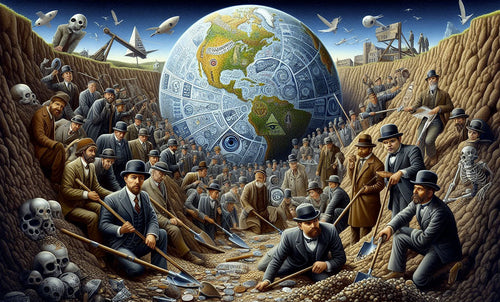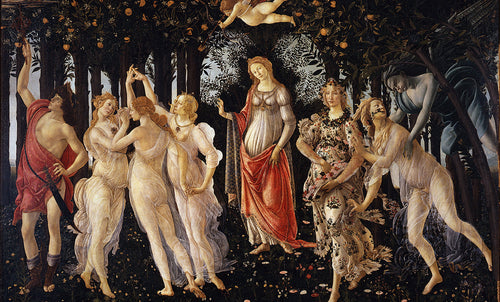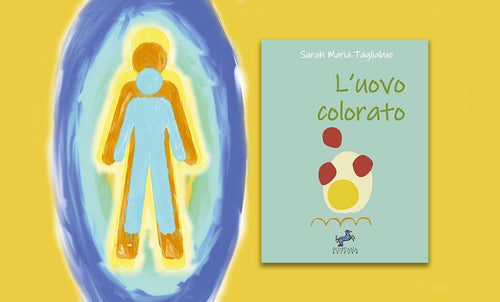
Nevertheless, we can make Gold, absolutely
Leonardo AnfolsiTo create Gold through Alchemy is just like free climbing a very steep cliff without any safety lock, a situation where the handholds are few, tilted and small.
Nevertheless, we can make Gold, absolutely.
But, first of all, we have to keep in mind that the “handholds” are really a few. This is mainly due to the fact that expectations grow great and most people might be tempted to believe they have found a wondrous shortcut to get easily rich without any effort. But such a belief just tantamounts to say that Alchemy is something that can be separated from life - or we should say, in a better way, “separated from karma” – as a form of knowledge that is capable to stand out on its own, unconnected to all that inner and outer universal algebra, to stand isolated outside of the whole hologram of synchronicity that allows us to be successful (or not) in whatever we pursue.
Well, such a belief couldn’t be more far away from the truth. In fact Alchemy doesn’t stand out of the game, because Alchemy is THE game.
Definitely, again, one can create Gold through Alchemy, and for some people the task would prove to be quite an easy one, but just as long as ...
- The person has no vile, material interest in making it;
- The person has no the material need to do it;
- The person has a true desire to make alchemical gold in order to help others, also keeping in mind that people are always capable of “helping themselves”, something that has to be kept in mind and that provides us the refined skill of a real helper.
Alchemy is NOT chemistry. Fulcanelli made it clear for our benefit when he stated in his own words:
“Here is the secret of Alchemy: there is a way to manipulate Matter and Energy such that eventually is generated what a modern scientist would call a Force Field. This Field is active on Matter and as well on the Observer and by doing so the Field will position this particular individual a privileged position in relation to the rest of the Universe. From this position the Observer gains access to all the dimensions of reality normally hidden by time and space and by energy and matter. This is what we, alchemists, call the Great Work.”
The “handholds” are tilted, because the alchemical instructions have to be fully understood, both in their symbolic meaning and also in a practical and functional way.
For instance when the ancient authors wrote the instruction “coobate”, the operating practitioner must know all its implications:
1) distill, and 2) throw again on the sediments (caput), and 3) distill again, and how many times repeat this stage... and 4) this will depend from several factors, because you are bound to obtain whatever… 5) whatever will be mentioned in the next phase… 6) obviously.
Obviously?
It is no really obvious, I think. Many readers and members of various forums dealing with Alchemy keep on sending posts always asking the same questions. The same happens when I read most of the e-mails sent to me on classic Alchemy topics. Why this apparently endless reiteration of the same questions?
In order to succeed, one must accept to fail, and to fail many times too. Because in order to truly succeed one has to learn, and Learning – since we here intend “learning” in the meaning which is typical of the metaphysical experiences rather than in its modern scientifical acceptation – is a process that has to do with situations such as facing the frustration, or rather living with it, may be also for quite some time, until a divine crack opens and one can finally move into a new level of perception, realize a new completeness and reach a new achievement. Eureka.
True science is research, and research never stops; otherwise what we call science would become only a scholastic reference to dated principles, or a compulsive and inexhaustible need to formulate definitive explanations, based on a ultimate general theory, turning a blind eye to everything that might appear to be inconsistent with it.
That is why in this issue we quote Bruner:
“Now obviously, research on anything will yield findings that mirror its procedures for observing or measuring. Science always invents a conforming reality in just that way. When we` confirm ‘our theory by `observations’, we devise procedures that will favor the theory’s plausibility.”
The awareness of the inherent fallacy of any description was the reason behind the alchemists’ choice to abstain from formulating general theories. Then is easy to realize that it was Lavoisier and other “chemists” who attributed the “Phlogiston” theory to the Alchemists, since the alchemists would have never be so vague to formulate “A Theory”.
Actually “phlogiston” was only an observation formulated to satisfy the needs of an immediate practice, and not at all a sort of “prehistoric attempt” to describe the dizzying heights of thermodynamics. Why an alchemist would be interested in creating such abstract theories?
Paracelsus is notorious for several contradictory statements, creating a sort of book of operational/perceptual principle; thinking within a real alchemical mindset they should not be considered like a domino game, or like a series of dots waiting to be connected with a pen line. The principles of Paracelsus are symptoms of a discovery, are evocations of mental states, all of which apply both to the Being and to the transient becoming, and at the same time relating to laboratory works, intended from a wider and deeper perception.
Finally we have stated that the “handholds” are small; this limit depends on the fact that a really effective instruction it is indeed quite a rare find, the same a good recipe that makes sense.
The world seems to be populated by “clumsy and inattentive scribes”, people quoting other people, continuing in bequeathing to the next generations all kinds of inaccuracies and typos.
In this sense the first chemists were meritorious in trying to make some viable order, and we are not only talking of the likes of Lemery and Dalton; Boyle too tried to do the same, but he eventually appeared to the new science theologians to be too much a “scepticus”, and almost “a witch doctor” to persuade them.
Having said and illustrated all the above we can now return to the initial question: why should we make Gold?
The Alchemists know that the Gold that you can “make” is not yours to keep, since it belongs to the poor, to the sick, to the needs for development of human culture and civilization. This Gold belongs to the Spirit, too, but to the extent of how much one is able to use it to the benefit of those who deserve it.
The ethics of the alchemists are very practical ones, not moralistic:
- To Live an Awakened Life is much more important than to live a Long Life.
- To Live in the Joy of the Spirit tantamounts to be the richest person on Earth.
- To remember that when you meet an alchemist full of joy and affection you might understand that your search is finally over and that in such a person you have found a brother or a sister.
That is the reason why the alchemists of the past, even the multi-billionaire, choosed to live in normal houses and used for themselves just that much that was needed to keep them going in their profession or trade.
Flamel was a scribe, Lefebre and Starkey were pharmacists, De Sangro was a nobleman, Fioravanti and Falloppio were anatomists and physicians and Gualdi was an entrepreneur in the mining trade.
Federico Gualdi showed on several occasions that he could spend at will any amount of money, yet one could find him every day walking down the streets of Venice bargaining on batches of minerals with casters, goldsmiths, pharmacists, builders and tradesmen. And when they asked him why was he still working, his answer was: “Why you’re asking me? What else should I do?”.
Edited by Pier Fabrizio Piola
















































